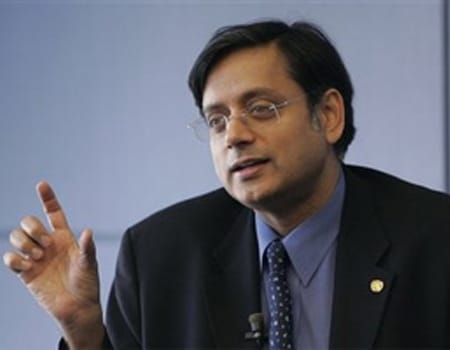Shashi Tharoor, who is a celebrated Commonwealth author, experienced diplomat and an Indian parliamentarian, in the essay 'The Idea of India', however, depicts that such a definition is unable to include the type of nationhood that India upholds and elaborates on the reasons behind this non-viability.
In the essay, Tharoor has emphasized on the aspect of India as a truly diverse country which is home to seven hundred tribes, almost a hundred different languages including the twenty-two official languages, not to speak of the dialects, six major religions with its various sub-sects etc. Additionally,
Tharoor attracts attention to that distinctive feature of India whereby a resident of one part of the country has his own specific culinacolour, Indian nationhood has often showed the tendency to prioritise one over the other, evident in the partiality often expressed towards Hindi language as the so-called national language of the country. In fact, the preference of any aspect, shared by only one specific section of the Indian multitude, as a national entity.
The imaginary aspect of a selection of majority in the Indian context is further understood through the shifting logics of the same. He depicts the diverse nuances embedded in the concept through the example of a Hindi speaking Hindu man from Uttar Pradesh who may identify himself as a minority in any state of southern India dominated by non-Hindi populace who do not belong to his state and who have a darker skin tone than his own.
Brahmins. Again, if he is particularly in Kerala, his male identity itself shall cast him as part of the minority group. Through this instance, Tharoor proves that "The whole point of Indian pluralism is you can be many things and one thing" .
Tharoor further elaborates on his argument that India is not a 'nation' in the Western sense of the term. He depry habits, ritualistic customs and conventions, ways of dressing, languages or patterns of speech -- features which are not shared or even may not be understood by therest of the population. Tharoor explicates this idea .
Thus,Tharoor emphasizes the fact that in case of India, the essential aspect of commonality, characterised by shared values and features, which is a prerequisite of nationhood has been violated.
Tharoor is of the opinion that all the attributes that form India must have an equal share in the representation of the national identity. The idea is best understood through the phrase "Mosaic of Multiplicities" used as a subtitle to the essay . Just like a mosaic which is created by assembling several small pieces of multi-coloured stones or glass or tiles, a new postcolonial and post-partitioned India was also being formed out of a multi-racial, multicultural and multilingual population. However,unlike the mosaic which provides identical space to all the components without any definite preference to any one icts that instead of being a pre-existing entity, it was "created" laboriously and installed with a meaning and purpose drawn by the
Thus, India became, in the words of Tharoor, "a rare animal" which was not based on any of the usual criteria of the unity of religion, geography, ethnicity, language or territory that, as the primary meeting point of a region or people, had often been considered as the basis of nation formation .
Tharoor finally sums up his ideas by using the metaphor of a thali to refer to the multiplicity which informs the essence of India. Moreover, the use of the native vernacular term informs the distinctiveness of the Indian case from any other kind of nationalism that exists elsewhere in the world. In other words, this thali represents the idea of a "consensus", extremely essential in a modern democracy that India represents, where "you really don't need to agree except on the ground rules of how you will disagree .... " .
Thus. India's current aura of being a 'nation' involves numerous violations. It can be said that India, in order to come up with a nationhood, has reformulated the definition or the foundation of the concept of nationalism and has reimagined the same on alternative lines from that of the Standard. He refers to the Indian nationhood, constructed on the imagination, vision and dreams of the nationalists and "[. . . ] emerging As such, Tharoor's ideas are akin to that of Rabindranath Tagore who, in his book, has depicted 'nationalism' as a new concept imported from the colonial masters and therefore, inapplicable to the Indian scenario without distortion and wishful thinking.


Comments
Post a Comment